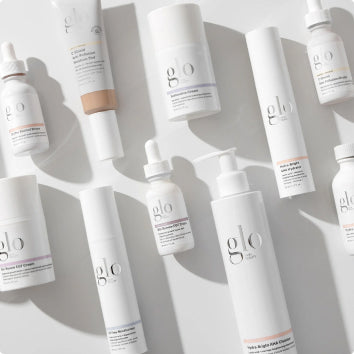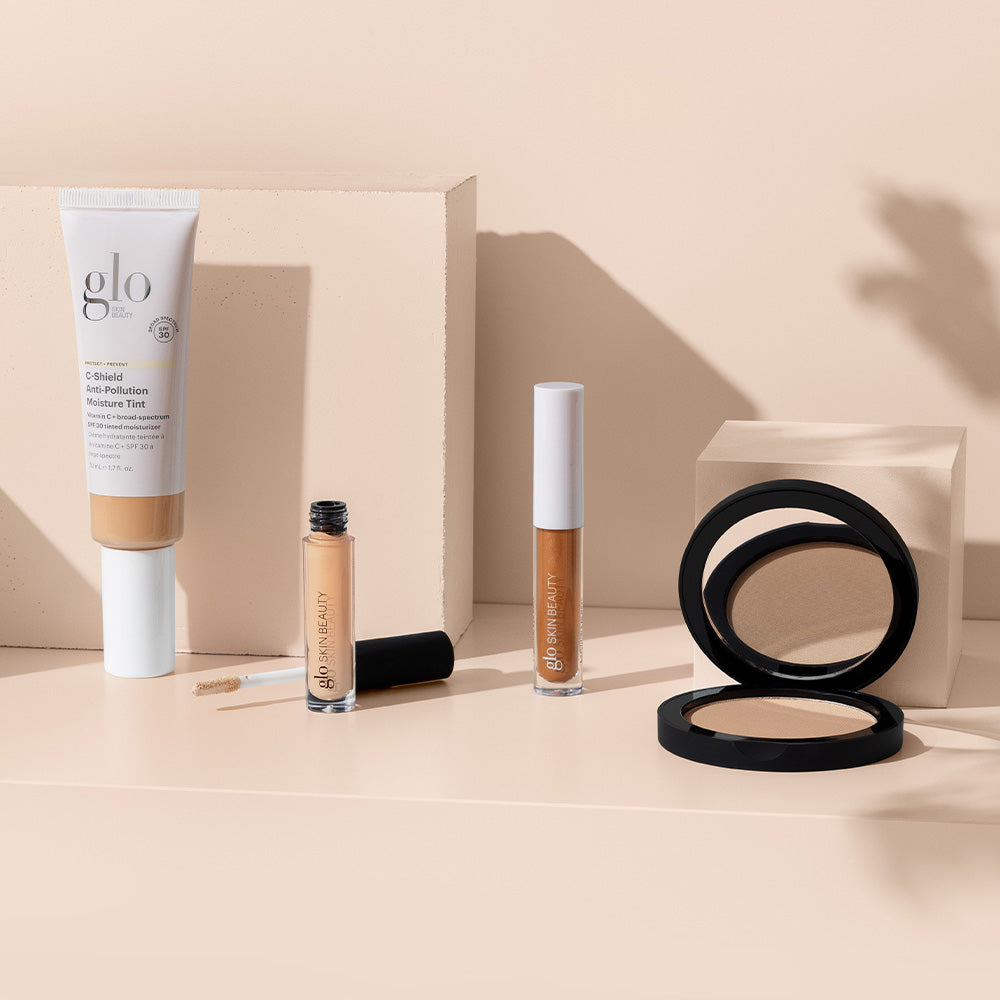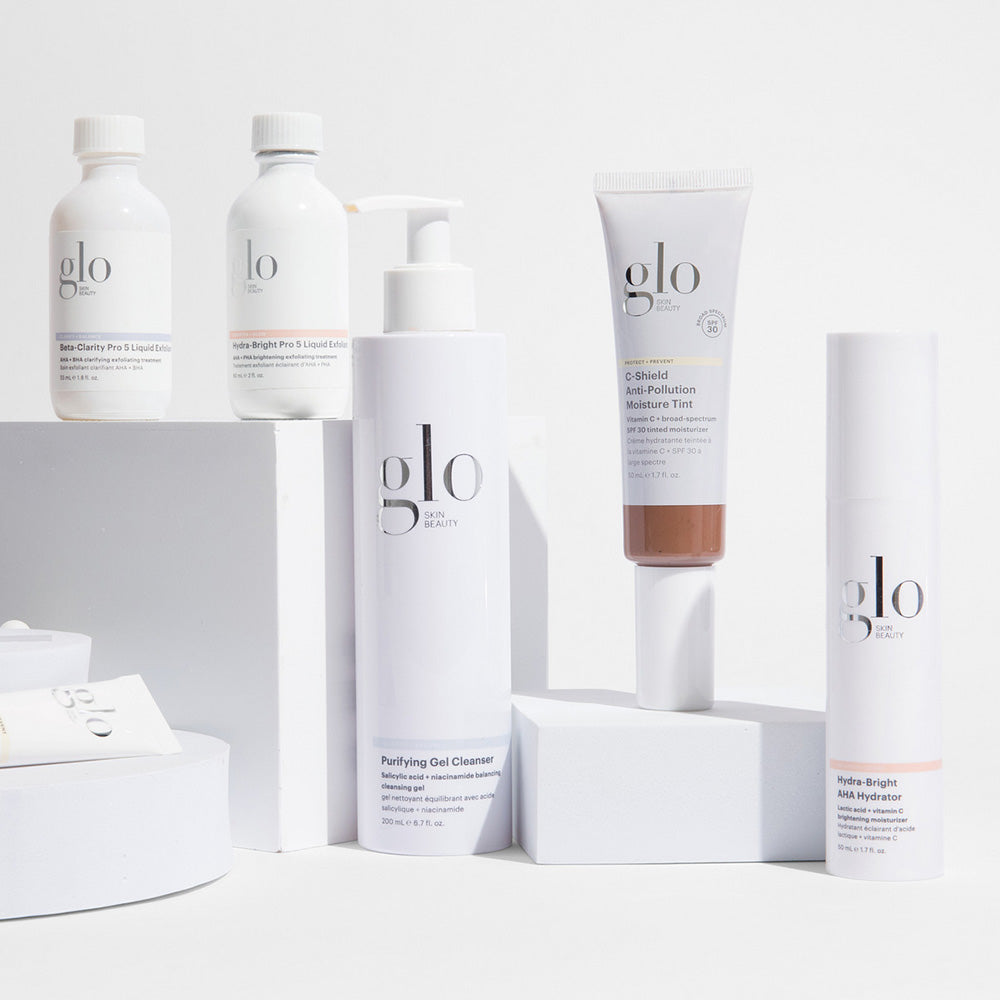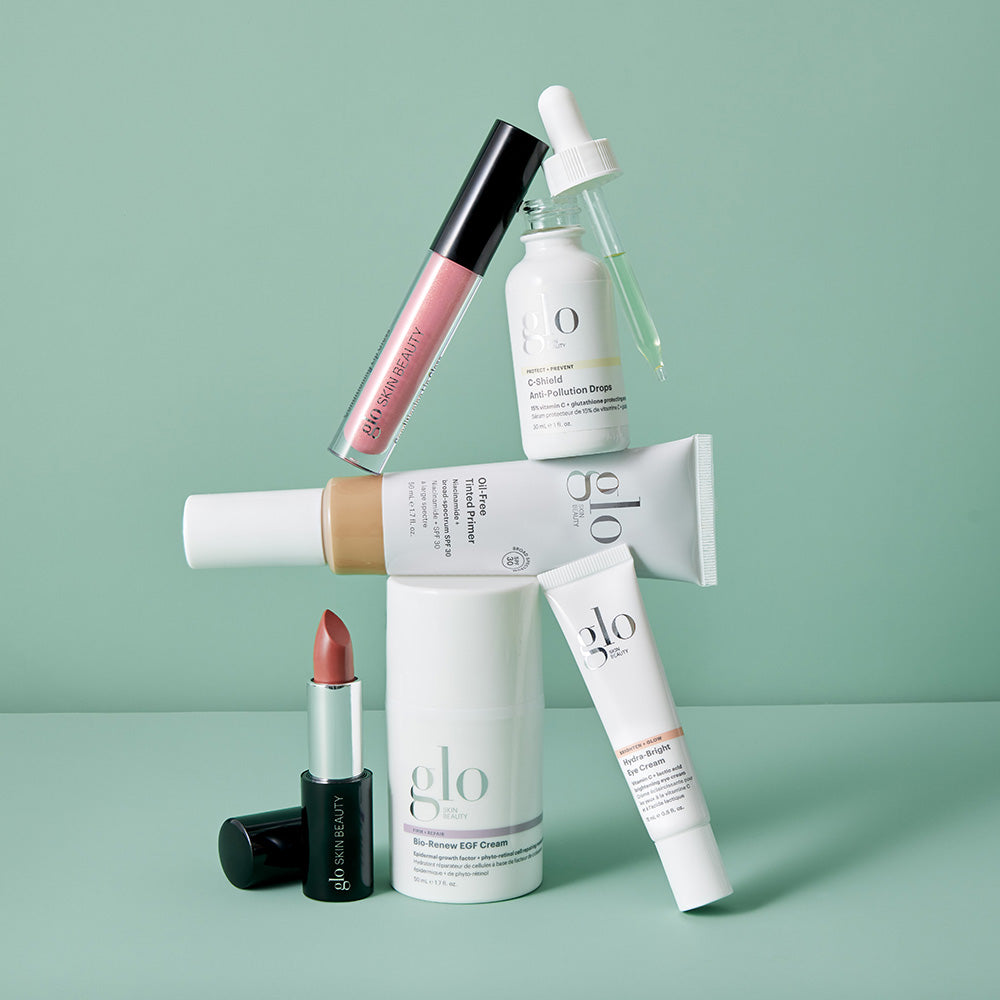
We use our makeup brushes every day—sometimes several times a day for touch-ups. But, can we say the same for our makeup brush cleaning habits? Makeup brushes that don’t get cleaned regularly can actually lead to breakouts and clogged pores, as we’re effectively reapplying fresh makeup with a brush that contains a build-up of old makeup residue and potentially blemish-causing bacteria too. Taking care of your makeup brushes regularly not only reduces the potential for acne breakouts, but also keeps your brushes in their best shape for years to come, and ensures your makeup application is the smoothest it can be.
So, if you're wondering how often to clean your makeup brushes, here are our pro tips on how to clean your makeup brushes and everything else…
How To Clean Your Makeup Brushes
OK, so if you're wondering how to clean makeup brushes, what to clean them with, and the best way to clean them, we've got all the answers right here.
Daily surface cleaning isn’t a replacement for a deep clean—think of it as daily maintenance, like cleaning off your toothbrush after use. The deep clean is needed to really get down into the individual hairs of the brush, where product gets stuck and coats the hair shaft, providing a rich breeding ground for bacteria. By removing all the debris from your brush, the bristles will be able to move more freely to distribute product effectively, so you’ll notice a major difference in the ease of your makeup application.
The Best Way To Clean Makeup Brushes
Wet: First, rinse the brush hair under lukewarm water. Wash the bristles only, keeping the handle and ferrule dry to prolong the life of your brush. If the ferrule (the metal part) becomes wet, the glue may loosen and lead to shedding and the wooden handle may become swollen and crack.
Cleanse: Add a drop of baby or sulfate-free shampoo or a gentle makeup brush cleaner to your palm, and swirl the brush in it to coat each hair.
Rinse: Next, rinse the soapy brush in the water and watch all of the product that’s released. Depending on how dirty your brush is, you may need to repeat. Be careful to never submerge the brush in water.
Dry: Once it’s completely clean, reshape the brush head and lay it flat with the bristles sitting on the edge of a counter—if it’s left to dry on a towel it can cause mildew to build-up. Let it dry there overnight. The denser the brush, the longer it takes to dry. It’s important to allow your brush to dry flat because you don’t want water to enter the ferrule.
You can also try special brushing cleaning mats and gloves to really get in deep using resistance and different textures to clean the bristles.
How Often To Clean Makeup Brushes
Another important question is how often to clean makeup brushes. Wipe down your makeup brushes after each use with a makeup brush cleaning solution for a surface cleanse, and then go for that deep clean every one to two weeks—depending on how much you use those specific brushes.
If you’re using the same brush to apply several different shades, you’ll also want to clean the brush before you switch colors so you don’t end up mixing the shades.
Look for a paraben-free, sulfate-free spray on makeup brush cleaner formulated with alcohol to cut through any oils, plus antibacterial ingredients that are safe for both synthetic and natural hair brushes. All our Glo makeup brushes are vegan and cruelty-free, crafted with pro-level synthetic fibers and are super easy to clean and maintain for years. Mist your brush and wipe the bristles on a clean towel or tissue.
How Often Should You Deep Clean Your Brushes?
For liquid or cream foundation and concealer brushes, it’s best to deep clean these brushes at least once a week to prevent product and oil build-up, and a general clogging of the brush bristles. Oils from the face and the product itself can get between the bristles and can generate bacteria growth. As these are brushes that apply product across your face, these face brushes need to be kept in tip-top condition to avoid contributing to breakouts. You'll also want them to deliver a super smooth application which means clean bristles are a must.
For powder brushes such as eyeshadow brushes, you can clean these every two weeks as they’re likely to be less clogged with oils and aren’t being swept across the whole face.
With regular cleaning and maintenance, your makeup brushes can last for years. But, if you notice any of your brushes are starting to look tired, have lost their shape, or the bristles are falling out, it may be time to treat yourself to an upgrade. Our pro-level makeup brushes are artist-approved and will make your application and cleaning a breeze.









